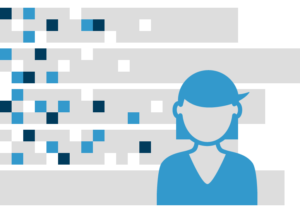Healthcare Organizations (HCOs) should look to Healthcare CRMs to enable their Digital Front Door strategy and meet the growing demands of their customers for a great experience – both digitally and beyond.
The recently published report, “The Forrester Wave™: Healthcare CRM Q1 2020” report identified the 7 most significant players in this market: Creatio, Healthgrades, Microsoft, Pegasystems, Salesforce, SugarCRM, and Welltok.
Based on our comprehensive analysis, Forrester identified Pegasystems and Salesforce as Leaders in the space today. Forrester’s clients can read the report here.
Forrester defines Healthcare CRM as: “A customer relationship management system designed for HCOs to engage, attract, acquire, and retain customers as well as aggregate multiple types of data — including clinical, demographic, scheduling, financial, and more — to create insight into healthcare customers’ activity and behavior.”
More than ever before, healthcare organizations must develop a deep understanding of their patients and members in order to drive effective behavior change, develop lasting relationships that lead to loyalty, and support personalization efforts.
This Wave is a follow-up to the “Now Tech: Healthcare CRM, Q1 2020” and a first of its kind at Forrester – that delves into the verticalization of CRMs as observed by Forrester in the report, “CRM Goes Vertical In The Age Of The Customer.”
Prescriptive Analytics and Customer Segmentation Enable Proactive Engagement
Forrester found three key differentiators for CRM vendors supporting the healthcare industry.
- Robust customer 360 capabilities that deliver insight- not just data. HCOs must have a way of aggregating disparate data sources together to get a holistic view of the customer, but one- dimensional data is not enough. The customer 360 view must deliver historical trends as well as predictive analytics that uncover future potential risks to the customer and the organization. To do this well, CRMs must provide access to real time data and insights that enable HCO employees to act, not analyze. HCOs need to be able to provide timely recommendations and interventions to their customers to thrive in the future.
- Actionable prescriptive analytics that bring workflow and results together. CRMs that provide prescriptive analytics position themselves to successfully deliver insights that enable delivery of next best action at the right time for their clients to best support their customers. For example, an HCO needs to know when a patient is struggling with aspects of social determinants of health (SDoH) and be able to assist the patient in connecting the dots from making an appointment to getting transportation so they receive the care they need.
- Deep individualization that moves beyond standard customer segmentation. These CRMs provide improved segmentation that leverages both prescriptive analytics and new data sources to enable HCOs to lead with individualization. While personalization relies on customer personas – a grouping of like individuals, healthcare customers demand an experience that resonates with them as individuals. Patients and members look very different from their neighbors – zip code level insights alone will not deliver accurate recommendations. Individualization is more in demand than ever as consumers demand experiences that mirror the rest of their lives.
Use the Healthcare CRM Wave to help you evaluate vendors based on your strategy and business needs. If you’re a Forrester client, you can read the Wave report here and the preceding Now Tech report here. If you’re interested in learning more about our findings, set up an inquiry with me or Kate Leggett here.
